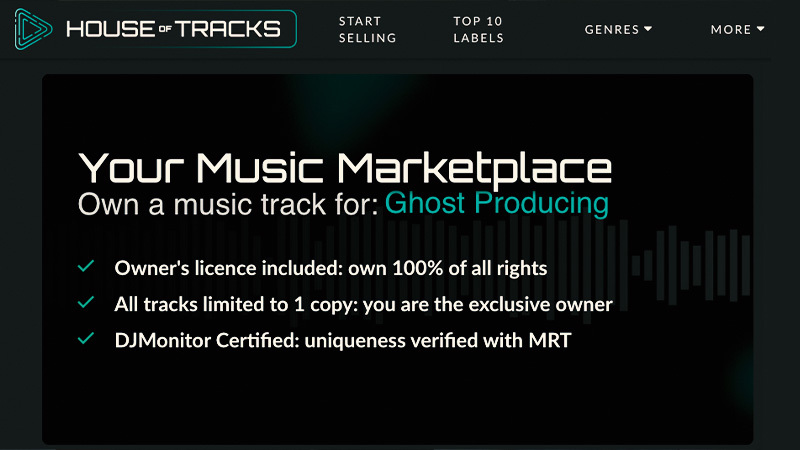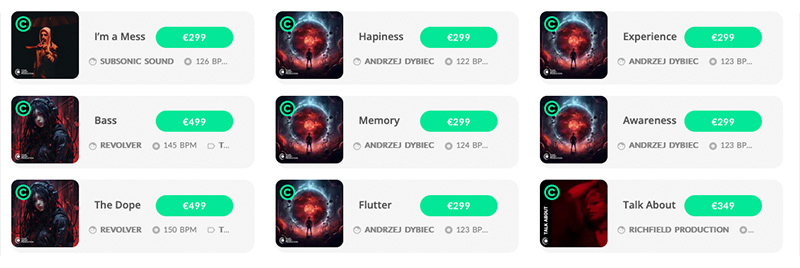Blog
Unveiling the World of Ghost Production: Your Path to Becoming a Hidden Hitmaker
31 Oct '2023
If you’re looking to cash in on your production abilities, or just want to expand your skill set, a career in ghost production might be the answer

In the world of music production, monetising your craft in an effective and sustainable way can be somewhat of a minefield. In an ideal world, you’d make a few tracks, sign to a major label then hop on your private jet to start your world tour. In reality, making money from music can be an uphill struggle riddled with endless ignored emails, working for “exposure” and DJing at christenings.
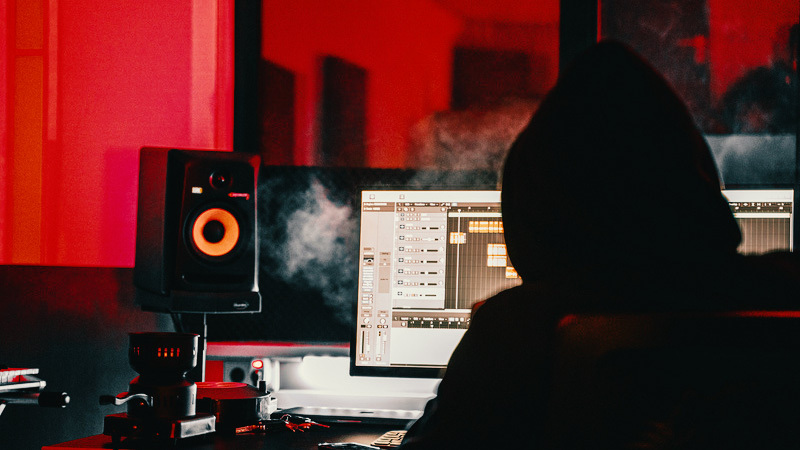
In this article, we’ll take a look at the mysterious world of ghost production, offering advice on whether it might be a suitable money-maker for you, and how to work towards landing your first client.
What is Ghost production?
A ghost producer is considered to be someone who plays a part in the conception or creation of a song in exchange for money, but who doesn’t receive official credit for their work. This last point is the crucial distinction between a ghost producer and a collaborator, songwriter or engineer, who would typically be formally credited for their contribution.
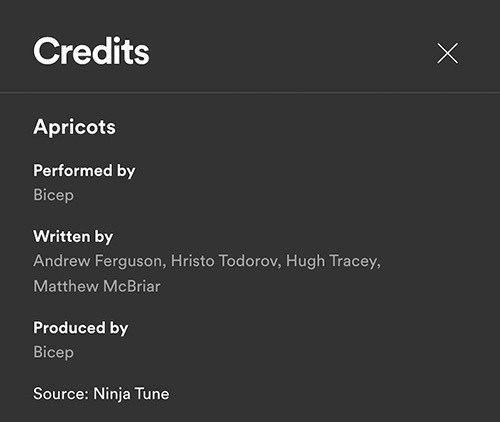
The practice of ghost production covers quite a broad spectrum of involvement. At one end, a ghost producer could write a single lyric, play a drum fill or design a synthesised bass patch, while the artist sees to all other production duties as usual. At the other end of the spectrum, the artist or label could submit a brief and some reference tracks to the ghost producer, who then writes, produces, and engineers the entire track. There are even ghost production marketplaces, where artists can purchase the rights to ready-to-go tracks, fresh out of the oven.
What are the advantages of Ghost production?
It’s not completely clear why, but there is somewhat of a stigma attached to ghost production. Other contentious production practices including the overzealous use of pitch correction, using MIDI packs, sampling, and general copyright tomfoolery tend to go relatively unchallenged. Meanwhile, ghost production has been known to receive bad press from some members of the creative world.

Many are quick to criticise ghost production, but in reality there are a number of ways in which it’s beneficial to everyone involved. The practice helps the artist to deliver better music to the listener, who in turn is happy to have new music from their favourite artist. This is likely to help sales and streaming figures, so the labels are happy too. Meanwhile, the ghost producer gets paid for their work and is able to forgo the trials and tribulations of being a famous touring artist.
Better work/life balance
Experienced ghost producer Timofey Reznikov initially set out to pursue a career as an artist but quickly realised the life of a DJ didn’t align with his own. For Timofey, being able to carry out the bulk of his work from the comfort of his own studio suits him down to the ground.
Playing to your strengths
For better or for worse, a huge part of success in music is based on image. That’s not a new thing - just think of how the term Rock Star came to be. We can all think of an artist who seems to be everywhere at all times, but we can’t name a single song from their back catalogue - their brand and reputation precede them. On the other side of the coin, there are artists who quietly release amazing music but never seem to receive the credit they deserve.

The truth is that some people are insanely talented in the studio, but just aren’t interested in being a global superstar. For those people, ghost production can be a very reliable source of income that doesn’t bring with it all the travelling and media attention of being the next Calvin Harris.
Encourages growth and improvement
Another benefit for the Ghost producers themselves is the opportunity to hone their technical and professional skills by collaborating with other artists. Having worked with some of the biggest names in dance music over the years, Timofey has been in some of the most productive writers’ rooms and music studios in electronic music. Working with other creative professionals is a great way to expand your knowledge and boost your inspiration.
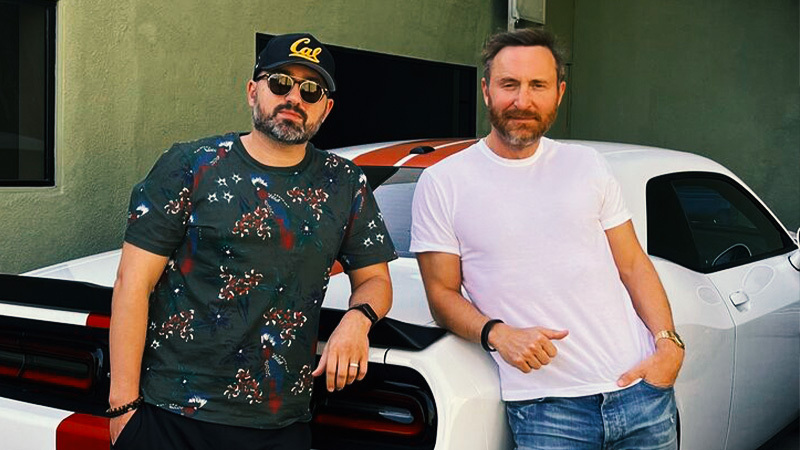
Timofey also says that producing for other artists has taught him some valuable lessons in the professional sense. Putting your ego to one side is essential for making it as a ghost producer - after all, you are working for the artist, not for yourself. You’ll need to be efficient and disciplined in the way you approach your workload, regardless of any creative, technical, or professional issues you might face.
How can you get into ghost production?
As is often the case with monetising your art, opportunities can present themselves when you least expect them. For Timofey, teaching DJs to use Ableton Live as a side-hustle quickly became a ghost production gig when people decided not to pursue production but still wanted to play exclusive music on the dancefloor. If you’re reading this article though, you’re probably looking for some more specific pointers on how to add ghost production to your repertoire and ultimately, your streams of income.
Make and share great music
This first point might seem obvious to some. If you are not already producing high-quality music in a popular style on a consistent basis, then this should be at the top of your to-do list. While this is just one piece of the puzzle, you should consider this the foundation on which to build your ghost production career. It should also go without saying that having a whole hard drive of great music hidden away isn’t enough to earn you a place in the best writers’ rooms in the industry. Your music has to reach the right people in the right places for it to make you any money.
If you feel like you need to brush up on your production skills or self-promotion know-how, why not read up on techniques for writing better melodies, or how to get your music on TikTok.
Build a portfolio
Now that you’ve got your productions perfected, you can start to collate them into a portfolio that will demonstrate your own original work in its best light. Consider your end goal - what kind of music do you want to spend your time making? And for what kind of artist or label? Timofey explains the importance of studying artists and their past releases in order to understand what a label or artist is expecting from you as a ghostwriter.
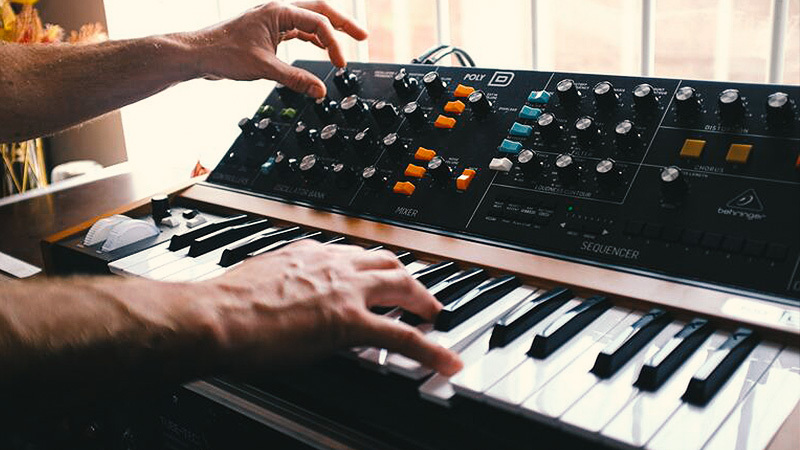
It might be tempting to include a range of musical styles in your portfolio in order to showcase your versatility, but this might paint you as a jack of all trades, a master of none. It may be more productive to identify a specific style that you enjoy working with and channel your efforts into becoming a specialist.
Network, network, network
Within the creative industry, you could ask how to secure just about any type of work, and the answer will almost always be to network. Better opportunities are more likely to present themselves more frequently when you have a large and active creative network. That doesn’t mean you have to upend your life and move to LA - there are countless ways of building a strong and valuable network through technology, particularly since COVID-19. Discords, Facebook groups, Soundcloud, and LinkedIn all offer different kinds of networking opportunities. Start posting, sharing, and engaging on these platforms to start to build up a presence, the connections will follow.
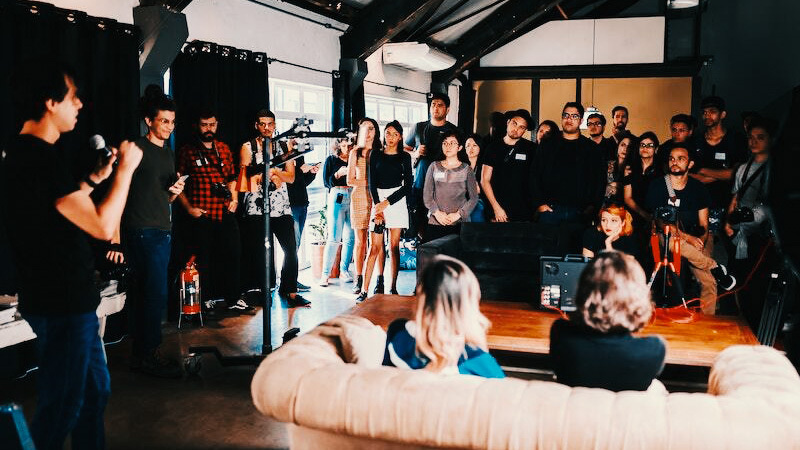
Submit demos to labels
In the world of hip hop, ‘type beats’ are an effective method of connecting producers with rappers. Type beats are when a producer composes an instrumental track in the style of a particular artist, making it easier for rappers to source the style of songs they’re looking for. The same approach can be applied in the electronic music world and can be adopted when crafting demos to submit to labels.
For example, if you wanted to submit a track to Toolroom Records, pick apart as many Toolroom releases as you can. Establish what they have in common, and what makes their most successful songs so popular. You should now have an idea of what a “Toolroom Type Beat” sounds like, and you can set about creating demos to send to the label for consideration.
Use a Ghost production marketplace
One inherent problem with marketing your ghost production services is that the nature of the work requires you to remain tight-lipped about any artists that you produce for. If you’re paid to produce music without credit and without telling anyone, it’s very tricky to publicise your work.
One way to overcome this issue is to advertise your services on a ghost production marketplace. These websites all work slightly differently but are all designed to connect those who need music for their project, and those who can make it. The benefit of using these services as a newbie to Ghost production is that you have access to a market full of people who are actively looking to spend money on music for their project.
Marketplaces to check
House Of Tracks – Pros: Wide range of genres, exclusive licensing. Cons: No ability to sell services, only to sell finished tracks.
EDM Warriors – Pros: Sell production services and vocal lines. Cons: Limited genre wise to just EDM.
You Ghost Production – Pros: Progressive royalty system, the more tracks you sell the better split you get. Cons: You can't set your own prices.
FAQs
What is a ghost production?
Ghost production is when producers write tracks to be released under the name of another artist.
Is Ghost production legal?
Yes, ghost production is legal.
How much should I charge for ghost production?
The price charged for ghost production can vary depending on your experience and who you are producing for. Early in your career expect to charge a few hundred dollars for a track, but this can become thousands of dollars as you progress.
